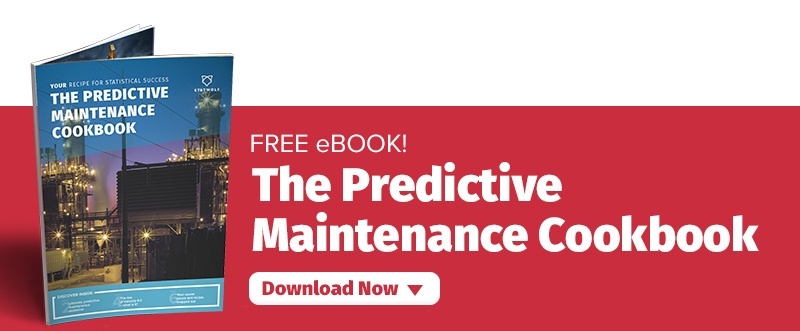How exactly will AI impact your manufacturing business?
It sounds like science fiction, but imagine a future where the machines in your business are so capable of self-assessment that they’ll know that an essential part is becoming worn down.
The machine will then contact the relevant manufacturer to tell them that you’re going to be needing a replacement part in exactly two months’ time. Don’t worry – the machine will be limited in what it can order in terms of replacement parts: anything over three figures and it will send an email to a supervisor who must accept the order being placed.
The manufacturer can make the replacement part and ship it to you… before your machine actually breaks down.
This isn’t the future, though. This is happening now and is exactly the situation that Procter& Gamble has found itself in. By implementing an artificially intelligent solution (provided by General Electric’s Predix and Brilliant Manufacturing), the company cut unplanned downtime by a factor of 33 percent.
And it’s not just Procter & Gamble leading the way: the market for smart manufacturing tools is expected to hit $250 billion by 2018, according to research company TrendForce.
The digital twin
Manufacturing companies are now starting to predict what will happen in different scenarios. One way they will be able to do this is by building what is known as a ‘digital twin’. There have been modelling programmes around for years but digital twins differ from because they are using artificial intelligence to input thousands of scenarios and outcomes at the same time.
For example, the aircraft manufacturer Airbus is currently using digital twins to predict how its new aircraft will perform. Industrial component maker Schafflaer is doing much the same but perhaps one of the most interesting examples is that of the German manufacturer Optima, which manufactures packaging machinery.
Optima models and optimises its digital product flows across the entire life cycle its machines before they are even built.
Optima teamed up with Siemens to build its digital twin and loaded the data of an actual machine it had previously built into the mode. According to Siemens, this “resulted in a digital twin that enables simulation of changeover operations and product flow across the entire lifecycle of the machine. Using a cloud connection, it is possible to evaluate KPI data such as produced items, downtime analyses, failure rates, and energy data.”
Research for manufacturing
Artificial intelligence can also help manufacturers with researching new products. Case in point: car maker, Toyota, which has made a pledge to ensure that the emissions from its vehicles will have .
Toyota is widely-admired in the world of manufacturing and anybody who has ever opened a textbook on the manufacturing process will have heard of its kaizen method. Kaizen means ‘continuous improvement.’
And Kaizen is exactly what Toyota is trying to do when it comes to batteries, which it sees as the key to halving its emissions in the next three decades.
This is an ambitious target from the second-largest car manufacturer in the world (in 2016, Toyota sold 10.175 million cars, just trailing Volkswagen, which sold 10.3 million, though Toyota is more profitable).
To help reach that goal, Toyota has turned to the field of artificial intelligence. Toyota wants to research how to make more efficient batteries which it thinks is key to reducing emissions. The reason Toyota has turned to AI to find the new materials that batteries should be made from is because it can handle the almost infinite number of variables.
“There is an infinitive number of knobs that you can tune when you are doing development work,” Storey said. “The hope is that the use of artificial intelligence will help us sort through the infinite number of things you can do.”
Improving profits with AI
Once your company has manufactured its product, your next challenge is getting it to your customers. Inventory management and supply chains are of vital importance for all manufacturers, particularly when it comes to large manufacturers. Some car manufacturers fine their suppliers up to $4000 per minute for any delays that cause downtime in their factories.
Making the delivery process more efficient is a key objective for all manufacturers. Forbes gave the example of how a heavy machinery manufacturer could save millions by making its process work more efficiently.
“In heavy machinery, many of the components are expensive,” the article said. “Four weeks of inventory could easily be valued at $100 million.
By moving from four weeks of inventory coverage to three, the savings associated with inventory carrying cost savings in one year would be $65 million.”
That means that delivery solutions are The tyre manufacturer Michelin is using tyres fitted with sensors to help fleet managers.
Michelin’s Effifuel service allows truck fleets to reduce fuel costs. Its sensors collect data on consumption, tyre pressure, temperature, speed and location.
This data is then transmitted to a cloud service and analysed – and then recommendations are made to the fleet manager. As a result, fleet managers are reporting savings of two litres of fuel for every 100 kilometres driven.
This has expanded Michelin’s role dramatically. It’s no longer just a tyre manufacturer – now it’s a logistics partner and advisor to transport and manufacturing companies. Indeed, Effifuel clients have the option of paying for their tyres on a per-kilometre-driven basis.
By all accounts, AI is helping to revolutionise the manufacturing industry.
Do you want to use machine learning for enterprise to take your business to the next level?
If you want to harness the power of artificial intelligence in your business, Statwolf’s data science service can help, with advanced online data visualisation and analysis simply running in your web browser.
We offer a range of custom services to suit your needs: advanced data analysis and modelling, custom algorithm creation and implementation with a particular focus on Predictive Maintenance.
Our advanced data science consultancy can team up with you to interpret your data and make your business work more efficiently so get in touch today to unleash your business’ potential.
Want to make sense of your data? Download our comprehensive guide: The Pedictive Maintenance Cookbook.



